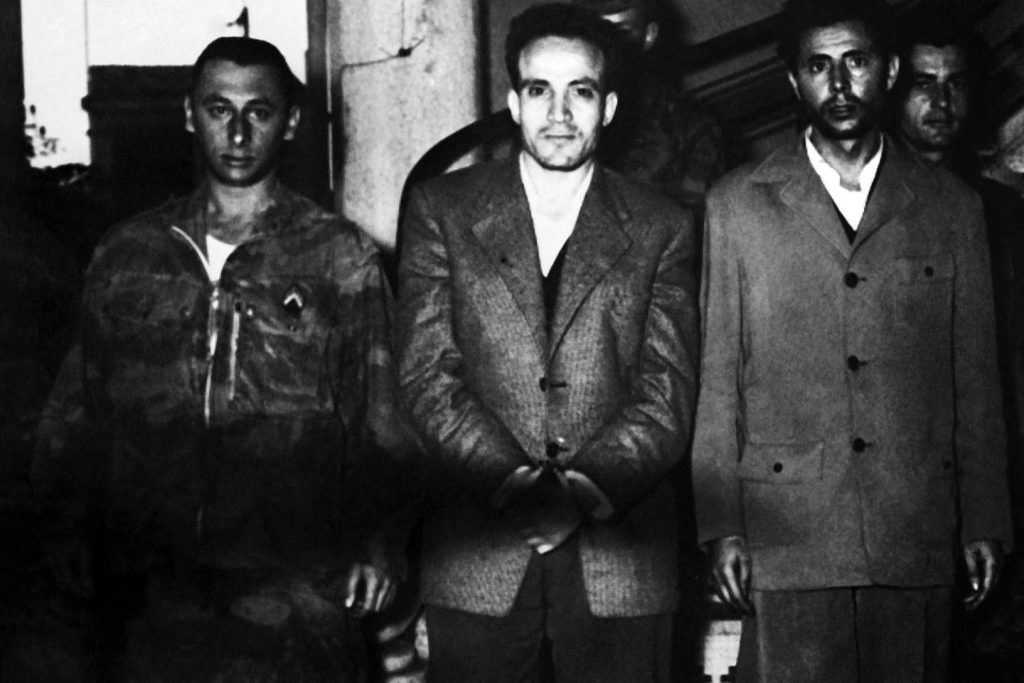Emmanuel Macron has recently acknowledged the responsibility of France in the assassination of Larbi Ben M’hidi in March 1957, during the Algerian War. Previously, the French army had presented the false narrative of Ben M’hidi’s suicide, but it was later revealed by General Paul Aussaresses in 2001 that he had been hanged. Ben M’hidi was a key figure in the independence movement of Algeria and considered a national hero. Macron’s acknowledgment of the truth is significant, as Ben M’hidi was not only a symbol of Algerian independence but also respected by French military and intellectuals.
Historian Benjamin Stora played a crucial role in urging Emmanuel Macron to confront the historical truth behind Ben M’hidi’s death. Ben M’hidi, often compared to the French Resistance hero Jean Moulin, was a prominent leader of the Algerian independence revolution, assassinated by French special services. Macron’s gesture recognizes the political legitimacy of the Algerian nationalists’ struggle for independence. Even Marcel Bigeard, an adversary of Ben M’hidi during the Battle of Algiers, acknowledged his importance by calling him the greatest.
In February 1957, Ben M’hidi was arrested by the commando led by General Marcel Bigeard and found dead a few days later. The initial French authorities’ claim of suicide by hanging was debunked, revealing that he was actually assassinated by a group led by “Commandant O,” alias Paul Aussaresses. Aussaresses, officially tasked with coordinating intelligence officers during the Battle of Algiers, was responsible for Ben M’hidi’s death along with six other men. This acknowledgment by Macron has brought closure and recognition to the truth of Ben M’hidi’s assassination, shedding light on the complexities of the Algerian War and the actions taken by both sides.
Macron’s recognition of the French state’s responsibility in Ben M’hidi’s death comes seventy years after the start of the Algerian War. This event marks a significant moment in French-Algerian relations and serves as a step towards truth and reconciliation. Ben M’hidi, known for his idealism, political acumen, and revolutionary leadership, continues to be revered in Algeria as a hero of the independence struggle. The acknowledgment by Macron seeks to honor Ben M’hidi’s legacy and acknowledge the injustices committed during the war.
The assassination of Larbi Ben M’hidi by French military forces underlines the brutality of the Algerian War and the numerous human rights violations that occurred during the conflict. This historical event is a reminder of the challenges faced by Algeria in gaining independence and the sacrifices made by its leaders. The recognition of Ben M’hidi’s assassination as a political act rather than suicide highlights the complexities and moral ambiguities surrounding the war. Macron’s acknowledgment signifies a step towards reckoning with the past and addressing the historical injustices that have long been ignored.
In conclusion, Emmanuel Macron’s acknowledgment of France’s responsibility in the assassination of Larbi Ben M’hidi represents a significant moment in the history of French-Algerian relations. By confronting the truth behind Ben M’hidi’s death, Macron seeks to acknowledge the sacrifices made by Algerian leaders in their struggle for independence. This recognition of historical injustices serves as a step towards reconciliation and a reminder of the complexities of war and the moral dilemmas it presents. Ben M’hidi’s legacy as a hero of the Algerian independence movement continues to be honored, and his assassination serves as a symbol of the struggle for freedom and justice.















